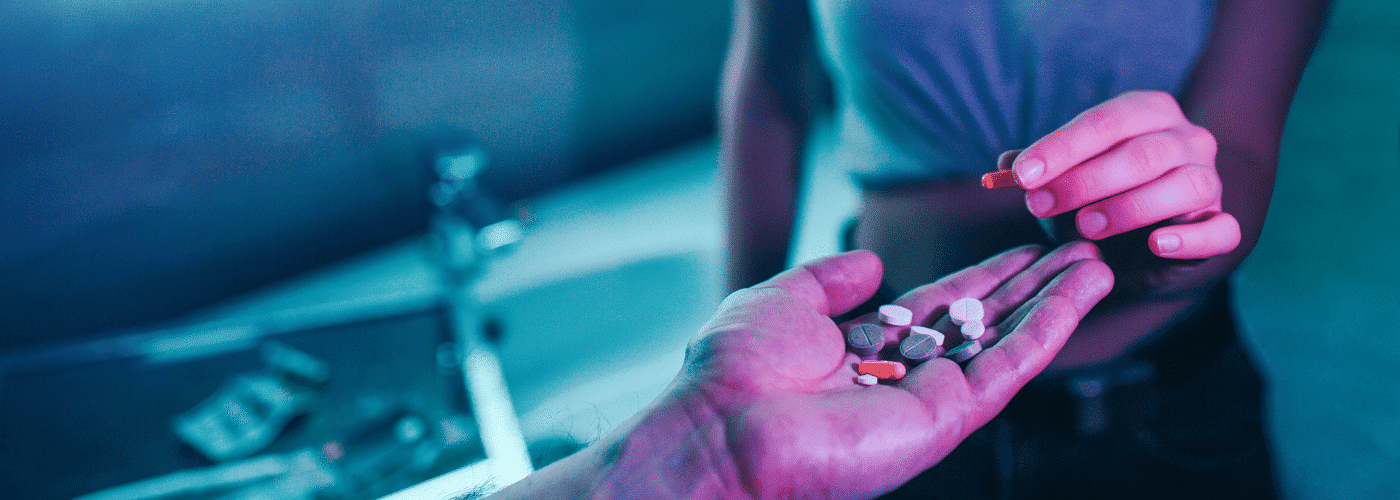To Halt means to stop abruptly. The acronym for H.A.L.T., as many people in recovery know, means hungry, angry, lonely, and tired. For recovering addicts and alcoholics, this word is how they monitor their state of physical and mental well-being. Paying attention to whether you are hungry, angry, lonely, or tired is extremely useful to make the most of, especially when you are in a new recovery. Newly recovering addicts and alcoholics are experiencing a new way of life, which is challenging. They are learning how to adapt to being clean and sober, and that’s a drastic change.

The acronym HALT helps recovering addicts remember to take care of themselves. When people are drunk or high, the last thing they pay attention to is whether or not they are eating, sleeping, feeling angry, or lonely. In fact, it is these very feelings that cause addicts and alcoholics to use or drink. Therefore, learning to take notice of their physical and mental state is how addicts learn to take care of themselves.
It is Possible You Have Experienced HALT
Everyone has times when they are experiencing hunger, anger, loneliness, and tiredness. However, for people in recovery, these feelings can be dangerous. According to the medical researchers at The National Center for Biotechnology Information and their research on relapse prevention, an emotional relapse is the lack of self-care, which includes eating enough, sleeping enough, and talking about your emotions.
During an emotional relapse, individuals are not thinking about using. They remember their last relapse, and they don’t want to repeat it. But their emotions and behaviors are setting them up for relapse down the road…The common denominator of emotional relapse is poor self-care, in which self-care is broadly defined to include emotional, psychological, and physical care…A simple reminder of poor self-care is the acronym HALT: hungry, angry, lonely, and tired. (NCBI)
Therefore, people in recovery need to practice high levels of self-care to prevent relapse as well as feel better overall. For many people in recovery they are just learning about how much food, sleep, and emotional support they need to remain positive about their recovery, which lowers the desire to get high or drunk.

Hunger Can Lead to Bad Decisions
Feeling hungry causes a person to be easily confused and irritable. Experiencing confusion and irritability will lead to more upsetting emotions if hunger continues. Feeling hungry is often hard for people in recovery to recognize. Most addicts and alcoholics were able to go for days or more without eating. And for many addicts and alcoholics they also used drugs and alcohol as a way to manage their weight. Once a person has recovered their instincts to eat normally, we learn that nourishing ourselves properly requires attention. The problem is that recovery is a slow learning process, but with eating, there isn’t exactly the time to get it wrong.
If a person is not giving their body the fuel that it needs, they will not respond to life’s challenges properly. Addicts and alcoholics who are now sober must break their old habits of starvation. A sober mind needs food. It may seem quite basic to remember to eat, but for recovering alcoholics and addicts, this is a new way of existing. By providing the body with enough food throughout the day, a person’s hormones and stress levels remain closer to normal.

Anger from Experiencing HALT
Anger is a potent negative emotion that can be particularly challenging for individuals in addiction recovery. While it may seem like a straightforward expression of frustration or irritation, anger often masks deeper feelings of hurt, fear, or insecurity. For those in recovery, anger can serve as a coping mechanism, a way to protect oneself from confronting uncomfortable emotions or situations.
One crucial aspect often overlooked is how anger can stem from the experience of the H.A.L.T. acronym as halt stands for Hungry, Angry, Lonely, Tired. These basic needs, when unmet, can exacerbate emotional vulnerabilities, making individuals more prone to anger outbursts or you and loved ones, such as family member’s mental health. For instance, fluctuating blood sugar levels due to hunger can significantly impact mood regulation, potentially triggering anger responses. Therefore, it’s vital for individuals in recovery to maintain stable blood sugar levels through regular, nutritious meals.
Moreover, feelings of loneliness or isolation can intensify anger. In early recovery, when support networks might still be developing, individuals may feel especially vulnerable to these emotions. The absence of healthy coping mechanisms, such as substance use, can make managing anger even more challenging.
Addressing anger in addiction recovery requires a multifaceted approach. Developing self-awareness is crucial—recognizing the signs of escalating anger and understanding its underlying triggers can empower individuals to respond more effectively. Techniques like deep breathing exercises can help regulate emotions in the moment, providing a valuable tool for managing anger.
Seeking support from a sponsor counselor, or attending or check-in to support groups like Alcoholics Anonymous or AA meetings (12-step meetings), addiction centers, or getting an addiction treatment from the treatment center and undergoing a rehab program can also be instrumental in navigating anger in recovery. These spaces offer opportunities for individuals to explore the root causes of their anger in a supportive environment, fostering healing and growth.
Additionally, maintaining healthy habits, such as eating healthy snacks and ensuring a good night’s sleep, is essential for managing anger. Fatigue can amplify irritability and diminish cognitive function, making individuals more susceptible to anger-inducing situations.
By acknowledging and addressing anger within the context of addiction recovery, individuals can cultivate healthier coping mechanisms and strengthen their emotional resilience. Through self-awareness, support, and the adoption of healthy habits, individuals can navigate their recovery journey with greater stability and success.

The Loneliness can be Damaging
Feeling lonely when a person is recovering from addiction and alcoholism is usually normal. Beginning a new lifestyle, far removed from the old drug and alcohol abuse atmosphere, causes a person to feel out of place and lonely. The good news is that there are more and more people in recovery every day, and they are there to support each other. It is important to recognize whether or not the loneliness is lasting longer than a day or two. If this is the case, the likelihood of depression is possible. Depression is common among many alcoholics and addicts who are in recovery. These people are getting help for their depression-like they are for their recovery.

Get Plenty of Sleep
Being well-rested and not tired is a good feeling for your body, mind, and soul. For newly recovering addicts and alcoholics, their ability to fall asleep is often challenging. Like many others in recovery, the time that it takes sot to adjust to sleeping normally does occur within about six months. When a person is not sleeping enough, they are out of it and usually resent other people because they are drained. It is perfectly acceptable to try natural sleep remedies when you are in a new recovery and beyond.The goal with HALT is to remind people in recovery to take care of themselves. Recovery is a lifestyle that requires effort and willingness to support it. By practicing HALT, people in recovery are protecting themselves from cravings, stress, worry, and fear. Being Hungry, Angry, Lonely, or Tired causes poor reactions and experiences. For addicts and alcoholics in recovery, they need to do whatever it takes to make their life experiences more positive.
Published on: 2019-09-11
Updated on: 2024-04-11






